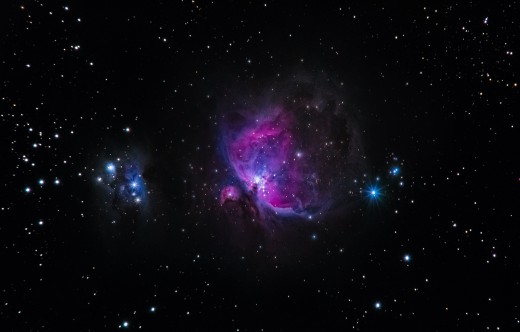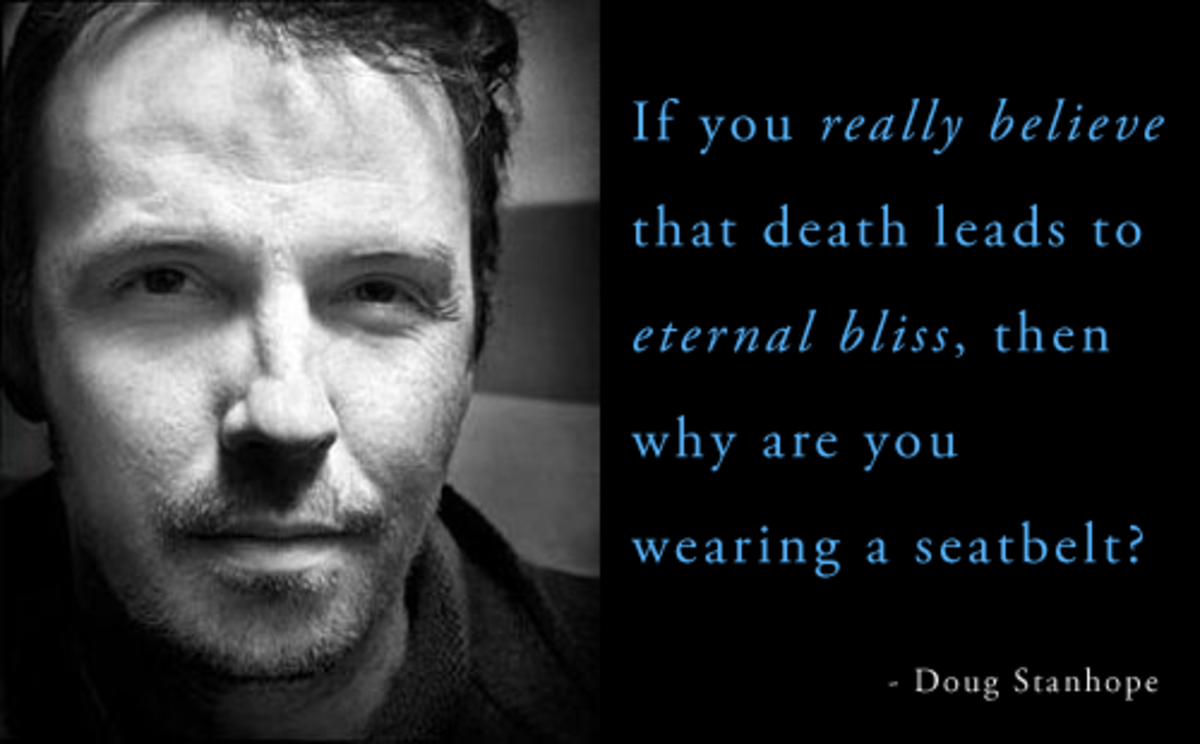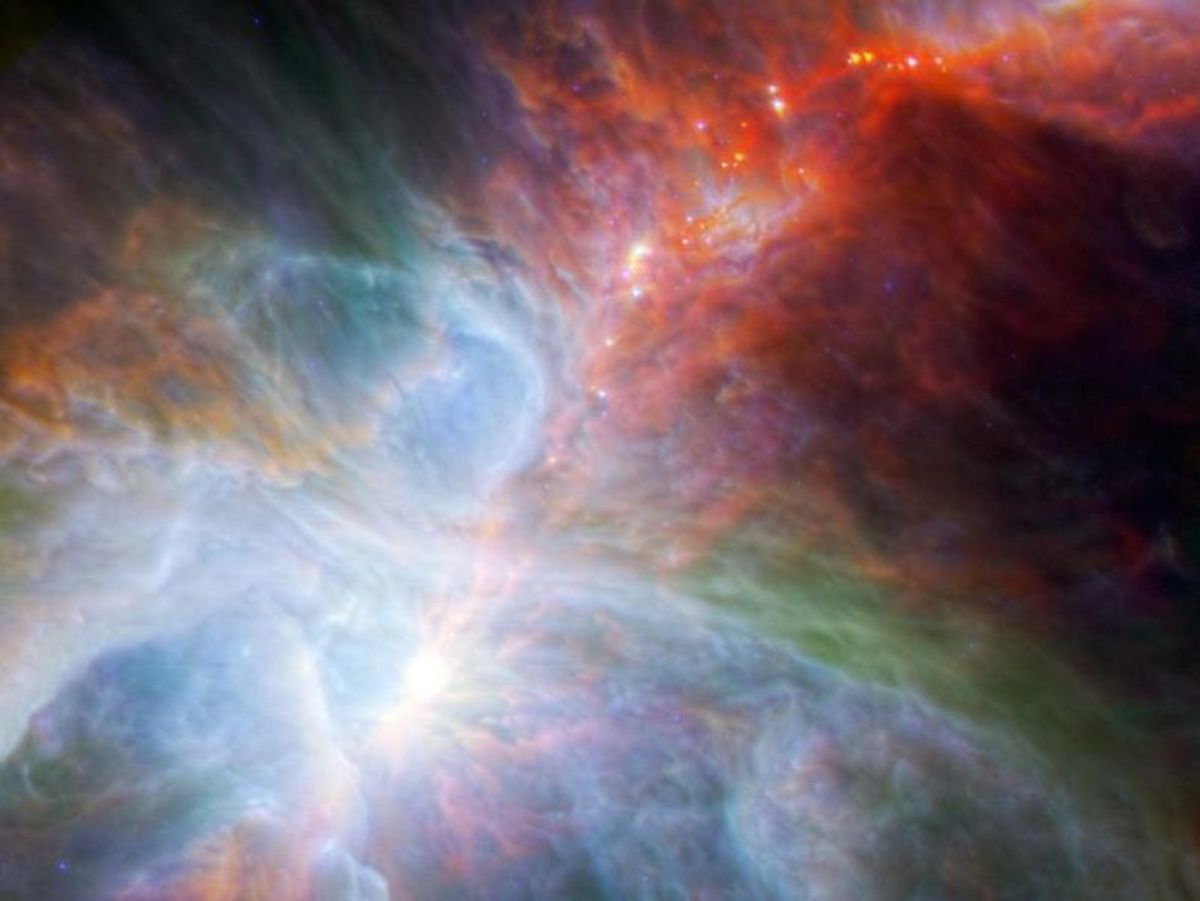Is God the Creator of the Universe?

2 common arguments in favour of God's existence
The Cosmological and the Teleological arguments are both arguments in favour of God’s existence. The cosmological argument was developed by Thomas Aquinas from the belief that everything in the vast universe, with it’s millions of galaxies spanning across hundreds of millions of light years of space, and the universe itself has a cause. For everything in the universe we can ask what caused it but then we can ask the same of the answer and the same of all answers after that into infinity. The universe is thought to have been caused by the big bang millions of years ago but even for this we can ask what caused it. Ultimately there can be no definite answer unless the question ‘what caused this?’ no longer makes sense. God is thought to be the possible answer. The teleological argument was motivated by the observation that the world around us is complex. The idea that small compact things such as eggs could contain all the necessary thing to a beautiful peacock. How is it that the egg contains all of the exact ingredient to make the peacock by chance? This posed the questions of whether this complexity was caused by a designer who made it so complex so as to fulfil a purpose. The argument offered the possibility that God caused the world to be as it is. Paley developed the argument from analogy into a more sophisticated version.
Cosmological argument
The cosmological argument from Aquinas came from his thought that the universe must have been caused by something that was itself uncaused. This uncaused cause was to be called the ‘first cause’ because it was to be the cause of all else as it would start off the chain. Aquinas thought this cause which didn’t require a further cause was a description of God. His cosmological argument is made up of three separate arguments; the argument from change, the argument from cause, the argument from continuity. The argument from change begins with the observation that nothing causes itself to change. Things around us only possess the potential to change but for this potential to be realised it must be met with some other thing which already possess the potential property. Nothing can be in the state of potentiality and actuality at the same time and so nothing can be self changing. In the case of animals which can move at will Aquinas believes it is another part of the creature which causes the change in the animal to be actualised. Each thing that changes is changed by something else but this can't continue into infinity unless met by something unchanged. This unchanged changer would be a being such as God. The second of these arguments is similar but relates to cause. Aquinas argues that every object and event has a cause. Nothing is able to cause itself as the cause comes before the event and so for something to cause itself means that it must exist before itself. This series of causes must have a first cause so as to avoid the causes stretching into infinity. This first cause is God but God does not merely exist at the start of the chain but throughout all causes as a form of sustenance - an efficient cause. The third argument, from continuity, says that what we see around us could possibly not have existed, and once did not. This refers to everything requiring a cause which need not have necessarily caused it to exist. If all things follow this rule then there would once have been nothing at all. If everything requires a cause and there was nothing to act as a cause in this nothingness then there would still be nothing. Therefore something must exist out with the continuity to cause the universe to exist at all. Such a being must be God. The cosmological argument as a whole follows a simple five step rule; everything has a cause, nothing is its own cause, a chain of causes cannot be infinite, there must be a first cause, and this first cause must be God.

Criticisms to the cosmological argument
There are of course many criticisms of this argument. The most obvious of which was pointed out by Bertrand Russell. He questions how it was that “everything has a cause” yet there “must be a first cause”. This however falls down as an objection as it is explained in the argument. It does seem that Aquinas is contradicting himself when saying there must be a first cause after saying that everything has a cause because what would cause this first cause? The first three points of the argument present a problem of an infinite chain of causes. In order to overcome this problem Aquinas must reject one of the first premises and he rejects the first in favour of an alternative which allows at least one thing to exist without a cause in order for it to cause all else. Russell does have another objection which stands up more as he notices that there is a fallacy of composition in the argument. He notices that Aquinas is assuming that the universe itself requires a cause for its beginning leading to the possibility of a first cause - God. Just because all things in the universe require a cause for their beginnings does not mean that the universe as a whole itself does. This is a fallacy of composition - when we mistakenly take the characteristics of parts of something as it they were the characteristics of the whole thing. Hume also criticises Aquinas’ cosmological argument saying that just because we don’t have experience of things happening without a cause does not mean that everything requires a cause. As humans we learn through experience and Hume understands this but he realises that just because we haven’t experienced it doesn’t mean it can't occur. Hume believes that God is a necessarily existent being but that necessary existence has no meaning to us as mere humans who can't fully know or understand Gods essence or nature. He believes God does exist but does not think that God is the ‘first cause’. If Hume is right then the premise ‘everything has a cause’ is false and as it is the basis for the cosmological argument then it must fail after it.
Teleological argument
The teleological argument originated from the observation that the world is full of complexity and things which seem impossible to comprehend happening by chance. From this idea came the argument from analogy. This argument follows the observation that complex natural phenomena display the same complexity as objects which have been designed by humans. This could mean that there is a similar cause for the complexity found in the world, that it too was designed and by an intelligent being which must be God. The argument is made up of four basic points: The world around us resembles the artefacts of human creation in that they both display complexity; this complexity in human artefacts is due to it having been designed and by an intelligent designer; there is not reason not to conclude that the world around us is so complex because it was also created by an intelligent being; therefore, the world around us has been designed to be so complex by an intelligent being who must be God. William Paley developed the argument from analogy and uses many of the same points but his argument is more sophisticated. Paley begins by looking at a watch and identifying the characteristics which make it obvious that it has been designed. He notices that the watch is designed because it fits its purpose so precisely. He then draws parallels of these purposeful design-like features in nature such as the sword-billed hummingbirds beak being the exact right length for the bird to feed off the flowers in its habitat. He only looks at human artefacts in order to identify what it is that makes us sure that an object has been designed. His argument has three points which are: Natural objects display properties you find in designed objects (fitness to purpose); Design-like properties are the result of intelligent design; Therefore, natural objects are the product of design.

Criticisms to the teleological argument
There are objections to these arguments expressed by Hume. He thinks the world is not similar enough to designed objects for a direct analogy to be drawn and trusted. Similarities do exist but they are not strong enough to base the existence of God upon. Both designed objects and the world around us share complexity but that is not enough to conclude the existence of God. Hume also believes that if an analogy is to be drawn then it would be better drawn between the world and an animal or vegetable; “the world plainly resembles more an animal or vegetable than a watch”. This he also believes is an objection to the argument because if analogy’s can be drawn between both designed and non-designed objects then it makes the argument from analogy appear less convincing. Hume has another objection which is that if the argument is accepted then does it present to us the kind of God we want? The argument from analogy does not present us with any characteristics of God and so we have not more information on God other than existence. Hume states that it may be more than one God working alone to design the world, “…why may not several deities combine”. The world could have been designed by an intelligent designer based on the argument from analogy. The creator could even have been evil because if the argument provides no characteristics of God then we cannot believe that God is necessarily benevolent, omnipotent or omnipresent as has traditionally been believed. Charles Darwin presents an objection to Paley’s argument in the form of his evolutionary theory. Darwin created the theory that biological organisms evolved naturally over millions of years from simple organisms. This would happen through the process of natural selection where only that which is able to fit in with the environment is able to survive. This presents another possible explanation for the complexity of the natural world without needing to use God as the designer. There has been a response to this objection though which asks why it could not be that God designed the world to include the evolutionary process. Evolution could be the tool of an intelligent designer who used it to ensure that his creations fir their purpose precisely. Some don’t accept this response and ask why it is that God made some creatures so poorly and with what would be considered mistakes. This belief requires the answer to the question of why, if God is such an intelligent being who uses evolution to guide his designs, it is that so many of his designs are apparently so poor. St Augustine of Hippo agreed with this as he thought that the story of genesis wasn’t to be taken literally but symbolically and that evolution would have occurred over millions of years and that in the bible it was only described as being within a shorter time span.
Conclusion
In conclusion, both the cosmological argument and the teleological argument provide a rational basis for believing in God; however, there is no proof or certainty in either of the arguments which would make them certain truths. Hume’s criticism of the cosmological argument, although fair, has as little proof as the cosmological argument itself has, if not less, and so is not adequate enough to overthrow Aquinas’ view. Russell’s first objection doesn’t damage the argument but his second objection regarding the fallacy of composition does. There is no proof or reason for Aquinas to suppose that the universe as a whole required a cause, if there is to be an uncaused cause why can it not be the universe itself rather than the unknown being, God? Aquinas presumes that the universe must follow the same rules of cause as that which is in it. This presumption is not justified and so Russell’s attack of this does create a strong sense of doubt over the argument, but only in the respect of God. Hume’s objections to the teleological argument make it appear less believable and trustworthy. He doesn’t deny the possibility of God in either of his arguments but only the way the idea of God has been obtained and how the argument lacks any particular characteristics of God. Darwin’s theory of evolution presents the possibility of the world not requiring a God for its design and creation but does not exclude the idea completely. Evolution could be the tool of God for his design. Overall both the argument from analogy and Paley’s argument do still present a ration basis for believing in God. I agree with Aquinas’ cosmological argument in that everything within the universe has a cause and doesn’t just happen and that things cannot cause themselves. It would also be the case that an infinite chain is impossible (though there is not necessary reason to believe this). This would therefore mean there must be a first thing that caused the next and so on until what there is today but I do not believe it is NECESSARILY God as Aquinas assumes it must be. I wouldn’t exclude the possibility of God being the cause but I would assume that it wasn’t a God who caused the universe, although it is possible that such an unknown unexplainable thing could have, but that the universe was itself the first cause or has just always been. I also agree with the teleological arguments basis as it is true that natural phenomena is extremely complex and it is difficult to conceive that such complexity could happen by shear coincidence. All objections to this argument fail to defeat its ability to persuade others to believing in God as each objection could have either been the result of God or irrelevant to the conclusion of God existence. On the whole both teleological and cosmological argument do provide a rational basis for believing in God.








